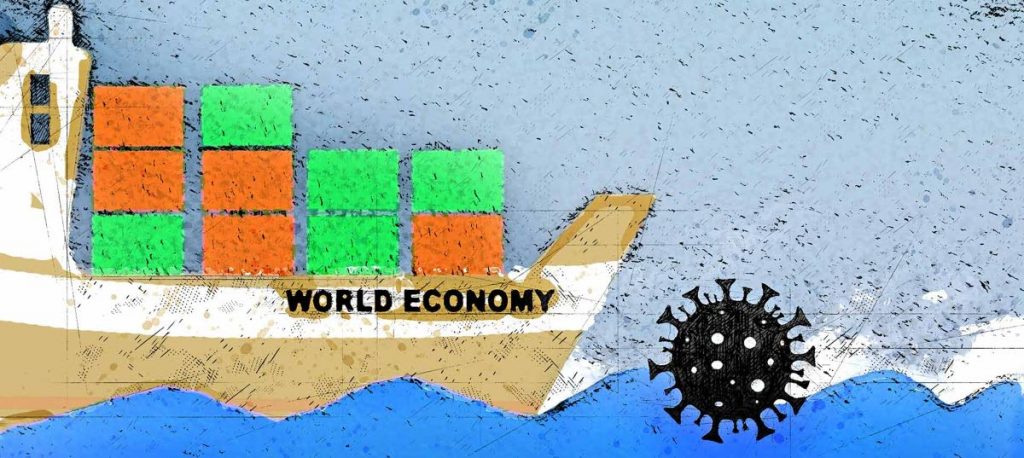Societal and economic impact of covid19

SHELLY ANN MOHAMMED, head of ACCA Caribbean
With the outbreak of covid19, many organisations are deep in crisis management and business continuity mode.
The spread of this coronavirus presents us all with challenges. It’s disrupting our day to day lives, and we’re all having to rethink what’s normal.
At the time of writing, the Caribbean has 34 cases, and health authorities have issued guidance based on the World Health Organization’s advice such as frequent handwashing and food safety.
Businesses are faced with decisions about how they do business as normal during far from normal times, especially within a volatile global economy.
ACCA’s most recent economic analysis says that the covid19 virus outbreak now represents a serious risk to the global economy.
In the space of a few weeks the crisis has shifted from a supply shock predominantly affecting mainland China, to a global demand and supply shock that threatens to push the global economy into recession.
Some are comparing the situation to the global financial crisis of 2008/09 which resulted in the deepest world recession since the Great Depression of the 1930s. Volatility in financial markets as equity prices gyrate while “safe haven” assets such as gold and government bonds enjoy strong demand underline the precarious state of the world economy.
There is no doubt that the short-term economic effects of the virus and attempts to contain it will be significant with many institutions downgrading economic growth forecasts for this year. The OECD has cut its global GDP growth forecast to 2.4 per cent from 2.9 per cent for example. But the OECD warned that on a worst-case scenario growth could fall as low as 1.5 per cent this year – indeed a global recession.
There is great uncertainty about the scale and duration of the crisis with a lot depending on the effectiveness of public health measures. More certainly, China, which is a month-plus ahead of other countries in suffering the economic effects, will record an economic contraction in the first quarter of this year, possibly at an annualised rate of 10 per cent or more.
The world is awaiting the peak effects of the virus on society and the economy. There is evidence of reduced consumer spending with leisure, travel and tourism already impacted due to reduced activity. And if a country goes into “lockdown” as Italy has recently done for example, with severe restrictions on the movement of people, then discretionary spending will come to a virtual standstill.
Small and medium-sized enterprises (SMEs) are likely to experience particular difficulties in dealing with this virus outbreak. With fewer employees and generally less of a financial buffer, SMEs will face disruption to their business activity and face financial difficulties much more quickly than larger companies.
For this reason, much of the policy response across the world should be concentrated on SMEs.
Fortunately, there is plenty that monetary and fiscal authorities can do to mitigate although not fully offset the economic effects.
However, the most important task for policymakers is to ensure that the present health-related crisis does not become a wider liquidity squeeze or credit crunch that greatly exacerbates the initial negative economic impact. For example, this would occur if otherwise viable companies collapsed because banks failed to provide credit to cover a temporary cash flow problem.
Already several central banks, including those of the UK, US, Canada and Australia, have cut policy interest rates. There are other monetary tools that can be used to sustain the credit channel and boost liquidity – some were used after the financial crisis.
For example, cheap central bank loans to commercial banks, offered on the condition that the funds are made available to private borrowers is a policy that could prove effective in the current circumstances. And there is quantitative easing (QE) – the purchasing of private sector assets with money created by central banks – which has the effect of boosting liquidity in the financial system.
Of course, in 2008/09 the banking system itself was in danger of collapse and was a major element of the crisis. Today the major banks are well capitalised, more tightly regulated and in better shape to help households and business to weather the covid19 crisis.
There are also microeconomic measures that governments can take to ease cash flow pressures on companies and households. These include delaying tax receipts, temporary tax cuts, wage subsidies and increased benefit payments to those suffering economic loss.
If appropriate policy action is taken on the necessary scale, then the economic effect of the covid19 crisis may well be severe but it should also be temporary. Once the crisis is past its peak and confidence substantially restored, then we would expect economic recovery to be swift with strong momentum.
In this case economic growth should regain the rate it would have been at, had the covid19 virus never existed. By contrast recovery after the financial crisis was anaemic and prolonged since balance sheets had to be rebuilt through higher savings and reduced borrowing over a period. Today balance sheets are generally in good shape.
So, the onus this time is very much on policymakers to do the right thing and facilitate a strong rebound when conditions permit: the early signs at least are fairly encouraging.
(Content courtesy ACCA)

Comments
"Societal and economic impact of covid19"